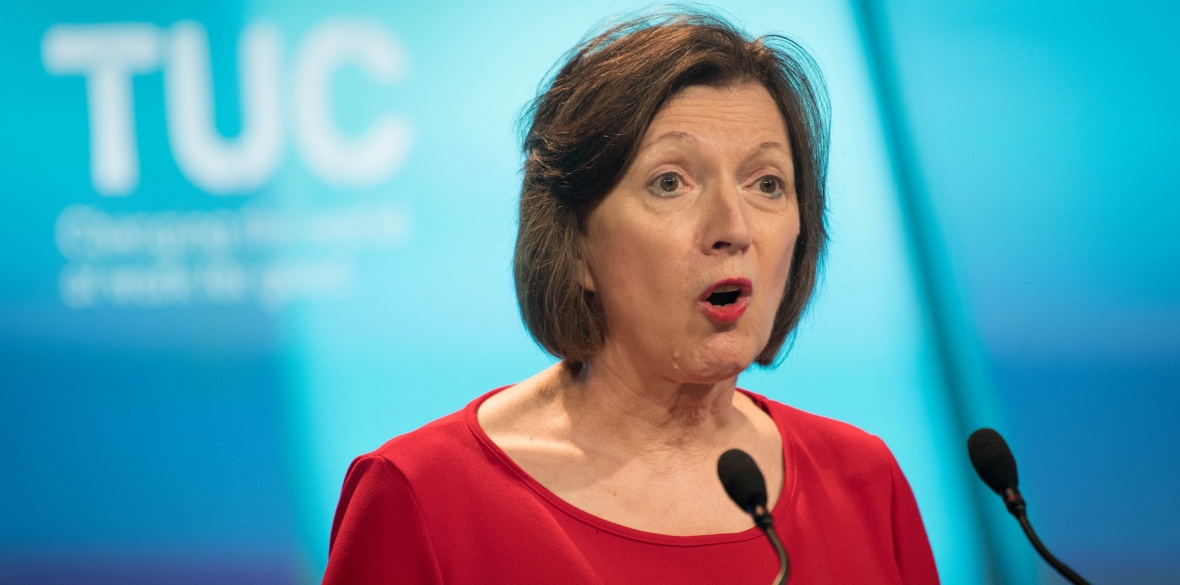This is the last article you can read this month
You can read more article this month
You can read more articles this month
Sorry your limit is up for this month
Reset on:
Please help support the Morning Star by subscribing here
THE huge cost hitting the public’s pockets of private ownership of the energy retail industry has been exposed in a damning report by the TUC today.
And the report includes a detailed blueprint on how to take the “Big Five” energy companies — British Gas, E.ON, EDF, Scottish Power and Ovo — into public ownership, saving the public billions of pounds and giving every household a free “band of energy” covering basic lighting, heating, hot water and cooking.
Taxpayers forked out £2.7 billion, bailing out 28 failed energy companies that saw failed chief executives walk away with millions in protected pay-offs.
The TUC report says that on top of that, the taxpayer will fork out an eye-watering £12bn allocated to help people struggling to pay their energy bills.
“If energy firms had already been in public ownership, bills could have been kept down without such a high cost to the public purse,” the report says.
Even before the current energy price crisis, families were paying unnecessary billions through their bills to fund private profits, it says.
Research by Common Wealth shows that UK energy retailers paid shareholders more than £23bn in the last 10 years, with most of these dividends going overseas to large foreign shareholders, the report says.
Government regulatory body Ofgem is expected raise its cap on energy prices by an anticipated 64 per cent in October, on top of a 50 per cent increase in April.
The latest increase will raise average household energy bills to £3,200 a year, just as winter approaches.
However, the TUC pointed to France, where national provider EDF is currently 84 per cent publicly owned, seeing household energy bills rising by just 4 per cent this year.
The French government as the main EDF shareholder was able to instruct the firm to cut profits to keep prices down, the TUC says, with Britain able to take a similar approach if energy retail was publicly owned.
Taking the companies into public ownership would cost taxpayers £2.85bn says the TUC –—not much more than the £2.7bn paid in bail-out cash.
Public ownership using the TUC blueprint would mean no more shareholder dividends; incentives to make homes more energy efficient; capping bills of the worst-off at 5 per cent of household income; lower bills; faster reduction in carbon emissions; and a pricing structure based on need.
TUC general secretary Frances O'Grady said: “Everyone should have enough affordable energy to cook, clean and keep their home warm.
“But anyone heating a private swimming pool should expect to pay a higher rate for their luxury lifestyle.
“Families should be able to afford their basic energy needs.
“But energy firms rinsed us for private profit in the good times, then doubled our bills when the going got tough. That’s why bills are soaring now.
“It is time to lift the burden of failed privatisation off families. No more shareholder pay-outs.
“No more fat-cat bonuses. No more take-the money-and run-companies that collapse overnight.
“Just fair prices from an energy company owned by us all and run for our benefit.”
Cat Hobbs, director of the We Own It public ownership campaign, said: “The TUC is absolutely right that it’s time to put public ownership back on the table.
“A publicly owned energy supplier could use surplus profits to protect itself — and the public — from energy crises like this, rather than pumping those profits out of the system and into shareholders pockets.
“It’s time to build an energy system that works for people, not profit.”
 Peter Lazenby
Peter Lazenby










